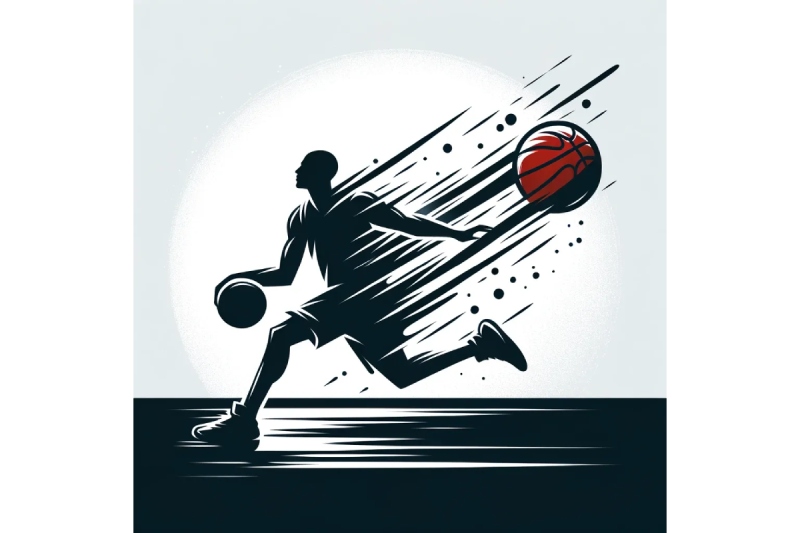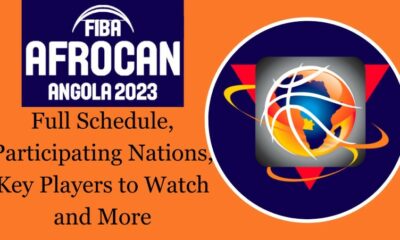Sports
3 Essential Tips for Aspiring Basketball Players

Many athletes harbor the ambition of entering the professional basketball leagues, viewing it both as a career milestone and the fulfillment of a deeply cherished dream that they have nurtured over the years. But while this ambition can be immensely rewarding, it also demands more than just talent and passion – it requires a roadmap that includes a blend of mentorship, rigorous training, academic achievement, and the proper exposure.
The reality is that achieving professional status is the culmination of years of dedication, where every practice, game, and experience builds towards this singular objective. This is why becoming a professional basketball player is as much about the journey as the destination, serving as a testament to your love for the game, dedication to your craft, and willingness to push the limits of what you can achieve.
Rewards And Perks Of Professional Basketball
Beyond the basketball trophies or the glitz and glamor of the courts, there lies a constellation of rewards and perks that come with achieving professional status in basketball, starting with financial incentives. Whether in national leagues like the NBA or in overseas competitions, athletes often find themselves privy to lucrative contracts that promise financial security, ensure a comfortable lifestyle, and offer the leeway to invest in personal projects, philanthropy, and post-retirement ventures.
To illustrate further, Steph Curry of the Golden State Warriors, who holds the title as the NBA’s highest-earning player, earned a remarkable salary of $51.9 million for the 2023 season. Aside from him, the league sees many players enjoying substantial earnings, with eighteen athletes receiving wages of $40 million or more in the same season.
Additionally, endorsement deals with sports brands and lifestyle companies, as well as appearances in media and commercial advertisements, can considerably augment their income, establishing a financial cushion that extends well beyond their active years on the court. But beyond monetary compensation, the lifestyle of a professional basketball player is peppered with benefits like access to top-notch sporting facilities, world-class training equipment, and expert coaching staff.
Accommodations, travel arrangements, and team-sponsored events are added perks for those who enjoy visiting new places because these activities will become a significant part of a professional basketball player’s life. As teams play across continents, the players get exposed to diverse cultures and audiences, imbuing their careers with the richness of varied adventures.
Journey To Going Pro
While every professional player’s journey is unique, there are common milestones and strategies that universally apply, and knowing these can help you carve your path more intelligently and with a clearer vision. Most of all, remember that your preparation starts before you debut on the court under the glaring lights, and this requires dedication, resilience, plus an unwavering commitment to excellence. Here’s a quick guide to what you need to aid you in your journey:
1. Foundational Skills And Training
Any successful basketball career starts with mastering the sport’s fundamental skills, such as shooting, dribbling, passing, and defensive maneuvers. From here, you can create more complex strategies and personal styles that will establish your identity and help you stand out from all other aspirants who want to enter the professional leagues. You can also incorporate advanced techniques and understand sophisticated game tactics by studying game footage, working closely with coaches to refine strategies, and learning to anticipate opponents’ moves through basketball analytics.
To be able to do all these, you must always take care of your body because the physical demands of professional basketball necessitate a comprehensive approach to health. This involves tailored strength and conditioning programs designed to enhance agility, speed, endurance, and overall fitness, which can optimize on-court performance and play a crucial role in injury prevention.
2. Mental And Psychological Preparation
Building mental resilience is crucial for athletes because the path to the professional leagues is fraught with challenges and setbacks, including losses, injuries, and periods of performance slump. You must also cultivate a competitive mindset, finding that balance between self-confidence and humility to learn and grow continuously, plus the ability to perform under pressure, handling both the expectations and the high-stakes nature of professional competition.
Techniques such as visualization, mindfulness, and cognitive behavioral strategies can help you develop a solid psychological foundation to handle all these, but at the same time, don’t ignore the importance of educational accomplishments. Many professional paths require collegiate participation, where academic eligibility plays a key role because education serves as an essential foundation for life beyond basketball, offering career flexibility and personal growth opportunities.
3. Networking, Exposure, And Professional Guidance
As athletes approach professional status, the assistance of sports agents becomes increasingly important since they can provide contract negotiation support and advice on career management, sponsorship, and branding opportunities. Aside from agents, it is also crucial to get guidance from experienced mentors like former players, coaches, or seasoned professionals to get insights about the on and off-court aspects of becoming a pro, including managing finances, media relations, and personal branding.
You must also seize every opportunity to display your talent, work ethic, and team spirit in environments where your performance could lead to recruitment opportunities or scholarships. This includes participating in high-profile tournaments, showcases, and camps to gain the attention of scouts and coaches. Additionally, you should actively engage in the recruitment process itself, which involves reaching out to college programs, creating highlight reels, and preparing for interviews and interactions with scouts and sports professionals.
-

 Sports4 weeks ago
Sports4 weeks agoFIFA Club World Cup 2025: Complete List of Qualified Teams and Groups
-

 Sports3 weeks ago
Sports3 weeks agoAl Ahly vs Inter Miami, 2025 FIFA Club World Cup – Preview, Prediction, Predicted Lineups and How to Watch
-
Health2 weeks ago
Back to Roots: Ayurveda Offers Natural Cure for Common Hair Woes
-

 Tech2 weeks ago
Tech2 weeks agoFrom Soil to Silicon: The Rise of Agriculture AI and Drone Innovations in 2025
-

 Sports3 weeks ago
Sports3 weeks agoFIVB Men’s Volleyball Nations League 2025: Full Schedule, Fixtures, Format, Teams, Pools and How to Watch
-

 Startup3 weeks ago
Startup3 weeks agoHow Instagram Is Driving Global Social Media Marketing Trends
-

 Television4 weeks ago
Television4 weeks agoTribeca Festival 2025: Date, Time, Lineups, Performances, Tickets and How to Watch
-

 Sports3 weeks ago
Sports3 weeks agoWorld Judo Championships 2025: Full Schedule, Date, Time, Key Athletes and How to Watch























